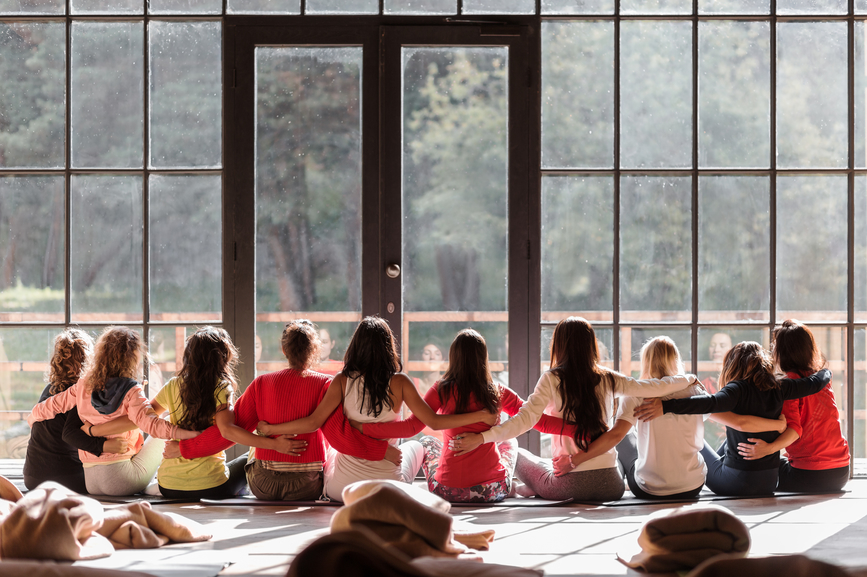In the hustle and bustle of contemporary living, mastering stress management techniques is not just a luxury but a necessity for overall well-being. Explore a repertoire of proven strategies that empower you to navigate life's challenges with resilience and maintain a sense of tranquility.
Mindfulness Meditation: Finding Peace in the Present

Embark on a transformative journey through mindfulness meditation. Learn to anchor yourself in the present moment, allowing stressful thoughts to dissipate. Cultivate a regular meditation practice to enhance your emotional resilience and foster a serene state of mind.
Deep Breathing Exercises: Oxygenating the Soul
Harness the power of deep breathing to counteract stress. Engage in simple yet effective breathing exercises to slow your heart rate, calm your nervous system, and promote a sense of relaxation. Whether it's diaphragmatic breathing or box breathing, these techniques can be practiced anytime, anywhere.
Time Management Mastery: A Key to Stress Reduction
Efficiently managing your time is a fundamental aspect of stress management. Explore time-blocking, prioritization, and the Pomodoro Technique to enhance productivity while minimizing the pressure of looming deadlines. By taking control of your schedule, you pave the way for a more composed and stress-free life.
Physical Activity as Stress Relief

Integrate regular physical activity into your routine as a powerful stress-busting tool. Whether it's a brisk walk, a yoga session, or a workout at the gym, exercise releases endorphins – the body's natural stress relievers. Elevate your mood and reduce tension through the rejuvenating power of physical movement.
Progressive Muscle Relaxation: Unwinding the Tension
Unwind the knots of stress with progressive muscle relaxation. This technique involves systematically tensing and then relaxing different muscle groups, promoting a profound sense of physical and mental calmness. Incorporate this practice into your bedtime routine for a restful night's sleep.
Journaling for Stress Release: Putting Pen to Paper
Give voice to your thoughts and emotions through journaling. Pouring your feelings onto paper not only provides a therapeutic outlet but also helps you gain insights into stress triggers. Create a stress diary to track patterns and identify effective coping mechanisms for various situations.
Digital Detox: Unplugging for Mental Clarity

Take periodic breaks from the digital realm to alleviate information overload and reduce digital stress. Set boundaries for screen time, especially before bedtime, to promote quality sleep and a calmer mind. Embrace moments of digital detox to reconnect with the physical world around you.
Social Support: Sharing the Load
Strengthen your social connections as a buffer against stress. Share your thoughts and concerns with trusted friends or family members. Building a support network provides a sense of belonging and shared understanding, making the journey through stressful times more manageable.
Laughter Therapy: The Joyous Antidote
Integrate laughter into your daily routine as a natural stress reliever. Whether through watching a comedy, engaging in light-hearted activities, or sharing a laugh with friends, laughter triggers the release of endorphins, promoting a positive mood and dissipating stress.
Creating Harmony: Advanced Stress Management Strategies
As we delve deeper into the realm of stress management, let's explore advanced techniques that go beyond the basics, offering nuanced approaches to cultivate lasting harmony in your life.
Cognitive Restructuring: Rewiring Stressful Thoughts
Challenge and reframe negative thought patterns through cognitive restructuring. Identify irrational beliefs contributing to stress and replace them with more balanced, realistic perspectives. By changing your mental dialogue, you empower yourself to face challenges with a calmer mindset.
Mindful Walking: Moving Meditation for Serenity

Transform your daily walks into a mindful practice. Pay attention to each step, the sensation of movement, and the surrounding environment. Mindful walking not only provides physical exercise but also serves as a meditative experience, promoting relaxation and mental clarity.
Biofeedback Techniques: Harnessing Body Signals
Explore biofeedback as a tool to gain awareness and control over physiological responses to stress. Devices can measure parameters like heart rate and skin conductivity, providing real-time feedback. Use this information to consciously influence and regulate your body's stress responses.
Visualization and Guided Imagery: Mental Escapism
Engage in guided imagery to transport your mind to peaceful, imaginary landscapes. Visualize serene scenes or use guided imagery recordings to induce a state of calm. This technique allows your mind to temporarily escape stressors, promoting relaxation and rejuvenation.
Emotional Freedom Techniques (EFT): Tapping Away Stress
Discover the power of EFT, commonly known as tapping. By gently tapping on specific acupressure points, you can alleviate emotional distress and reduce stress. Incorporate this technique into your routine as a self-help tool for managing a variety of stress-related issues.
Resilience Building: Strengthening the Core

Foster resilience through intentional practices that enhance your ability to bounce back from adversity. Embrace challenges as opportunities for growth, cultivate a positive outlook, and develop coping mechanisms that fortify your mental and emotional well-being.
Holotropic Breathwork: Deepening Mind-Body Connection
Explore holotropic breathwork as a method to induce altered states of consciousness through controlled breathing. This technique can lead to profound insights, emotional release, and a heightened sense of well-being. Engage in this practice under the guidance of a trained professional.
Neurofeedback Training: Balancing Brainwaves
Consider neurofeedback as a form of brain training that aims to regulate abnormal brainwave patterns associated with stress. Through monitoring and feedback, individuals can learn to optimize their brain function, promoting a more balanced and relaxed mental state.
Sensory Deprivation Tanks: Floating Into Tranquility

Experience sensory deprivation tanks as a unique form of stress relief. By floating in buoyant, salt-infused water in a dark, soundproof tank, you eliminate external stimuli. This sensory isolation induces deep relaxation, offering a respite from the demands of daily life.
Conclusion
In conclusion, stress management is a skill that can be cultivated through mindfulness, breathing exercises, time management, physical activity, progressive muscle relaxation, journaling, digital detox, social support, and laughter therapy. By incorporating these techniques into your life, you empower yourself to master stress and embrace a serene, balanced existence.
